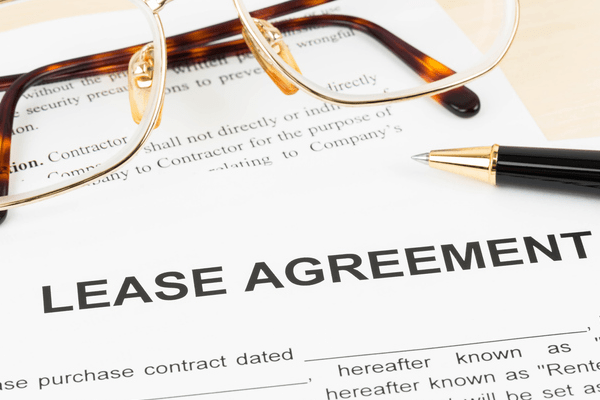New Thoughts On Lease Negotiations In A Post-Pandemic World
By Rick Tannenbaum
There are millions of commercial property leases in place. While most have incorporated contingencies for scenarios from A to Z, few have considered what to do in the face of a widespread and devastating health pandemic.
In fact, there is likely no such thing as a “Pandemic Clause.”

Searching through the dozens of commercial leases prepared and reviewed over the years, I have yet to find an actual “Pandemic Clause,” which would clearly establish the rights of the landlord and tenant when a pandemic affects a tenant’s occupancy rights. In the absence of such a clause, which other lease clauses determine which party bears the risks in such a crisis?
Force Majeure Clause
Most tenants and legal advisors turn first to the Force Majeure clause. Known as the ‘greater force” or “act of God” clause, these provisions generally provide that during certain delineated or non-delineated events, performance under the lease is excused by the party asserting that force majeure prevents them from performing their lease obligations. For example, a retail tenant at the time like this who cannot pay rent might invoke that clause.
Some force majeure clauses are quite specific and detail those events (from hurricanes to pestilence) that might excuse performance. A clause listing “national pandemic” would be rare. Many are quite vague and open-ended, and could arguably include a pandemic.
Most force majeure clauses also require the party asserting it must take steps necessary to mitigate its inability to perform, including availing itself of insurance proceeds for business interference and/or participation in government assistance programs. Failure to properly insure may preclude the tenant from asserting force majeure.
Law & Ordinance Clause
One might also look at the Law & Ordinance clause, which generally requires the tenant to comply with all laws and ordinances, including a government-ordered shutdown of local businesses. One might argue that this makes a closure for pandemic relatively foreseeable and again insurable. Therefore making the tenant bear the risk of a pandemic closure.
Quiet Enjoyment Clause
The Quiet Enjoyment Clause stipulates that as long as the tenant pays rent and meet its other lease obligations, it shall enjoy the undisturbed use of the premises, free from landlord interference. A pandemic declaration interferes with the tenant’s quiet enjoyment. But again, it was not the landlord who ordered the tenant out — it would likely be the product of a forced government shutdown.
Tenants may also assert “impossibility of performance” or “frustration of purpose” to excuse rent payments. These are generally valid contract defenses. While these defenses may work in a courtroom or a mediation, few tenants would want to default on leases based on these claims.
Choice of Law
Landlords and tenants often overlook the Choice of Law clause. Most leases dictate vaguely that the lease is subject to the laws of whatever state the property is located in. There may be provisions in that state’s law governing temporary closures, emergency declarations and the like. States often pass laws specific to a tragedy, so a law could be passed in response to a pandemic that might affect lease obligations in the immediate and short-term.
Condemnation/Eminent Domain Clauses
Condemnation clauses allow for public takings of private property temporarily, provided the taking if for a public purpose. Closing retail to limit pandemic exposure sounds like a valid public purpose. Depending on the words in the condemnation clause, the obligations under the lease could shift at least temporarily, and a tenant would could be temporarily or partially relieved of its obligations.
Despite these possibilities, most leases require rent payments be made timely and without offset or demand, and require an absolute duty to pay, subject only to other specific provisions in the lease.
Prudence would dictate that future leases contain a specific “Pandemic Clause” and address the rights and obligations of each party during a pandemic declaration. Those provisions, subject to negotiation, could include rent abatement, reduction, or deferment. They could include extending the term of the lease to encompass the weeks/months of closure. They could include a requirement that the tenant avail itself of any governmental assistance program available, such as loans or grants that enable it to pay rent and maintain the premises (HVAC, utilities, etc.) as well as provide proof of attempts at participation before any deferral, reduction or abatement is available. Pandemic insurance could also be required and proof of filing a claim. Tenants could also be able to use their security deposits for rent, subject to replenishing the fund at some future date.
In the absence of clarity, communication is recommended. Tenants should ask for an abatement, reduction or deferral in writing and keep a record of the request. Landlords should have a consistent policy regarding the same to avoid any claims of discrimination or acting arbitrarily.
Landlords should generally act and take steps necessary to preserve the tenancy of a good tenant – credit rated or otherwise, including offering some sort of rent assistance during a national pandemic.
Rick Tannenbaum sells commercial investment property with Houlihan Lawrence. rtannenbaum@hlcommercialgroup.com
Also read:
Crowdfunding Your Way Into a Real Estate Investment (August 19, 2019)
Clarkstown vs. The Palisades Center: It’s Complicated (June 24, 2019)
Battle Lines Drawn in Vitane Pharmaceutical Fight to Remain in Clarkstown (March 22, 2019)
Clarkstown Should Reduce Dependence on Retail (February 20, 2019)
New Thinking Over How To Use Glut Of Empty Bank Buildings (January 31, 2019)
When Fair Leasing Terms Are a Workout (January 2, 2019)
Finding Balance in Scaffold Law Reform (December 11, 2018)
Economic Vitality Depends on Affordable Housing Options (November 26, 2018)
Opportunity Knocks on Haverstraw’s Door (November 4, 2018)
Real Estate Investors Rejoice Over New Depreciation Opportunities (October 23, 2018)










